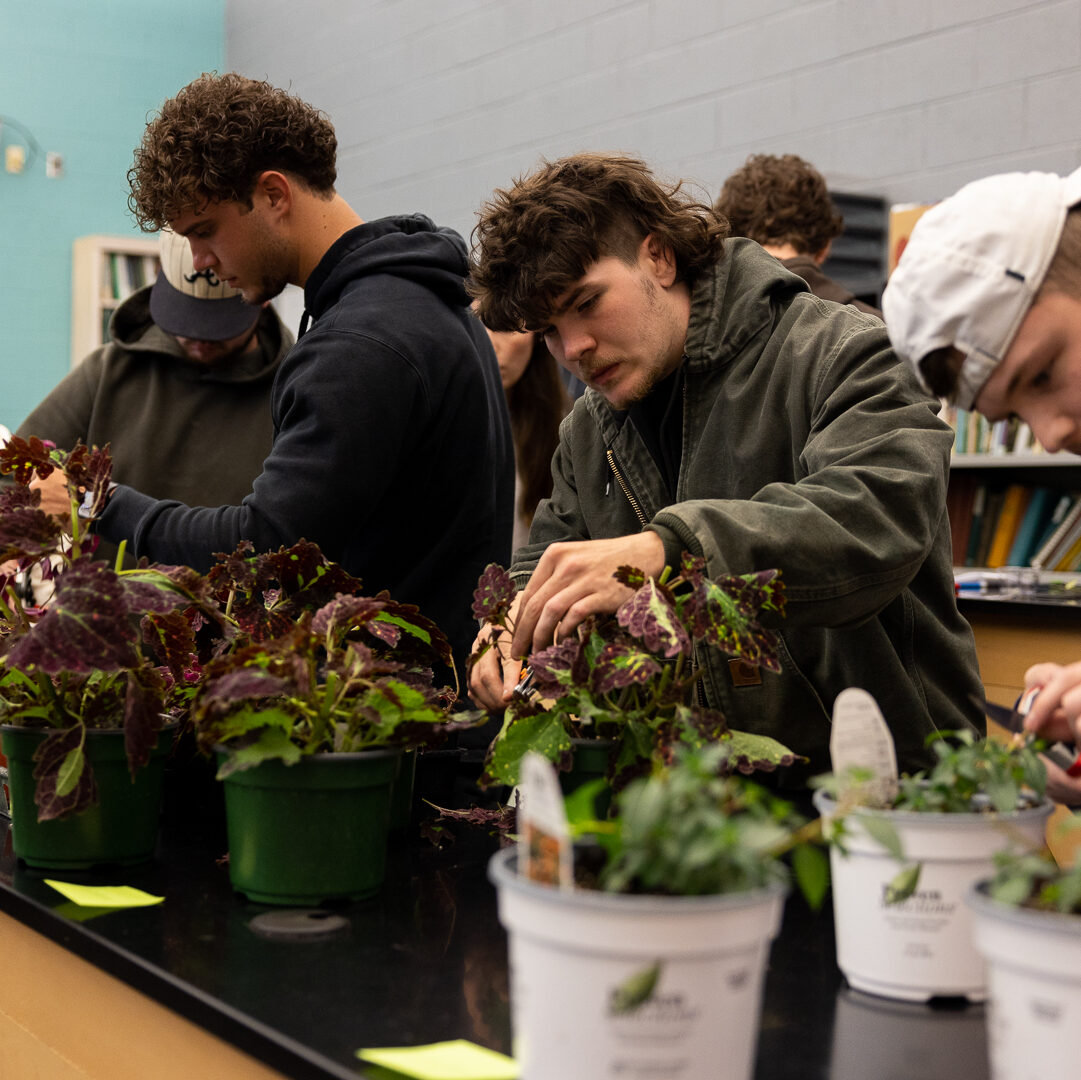Upon choosing the Plant Sciences major, undergraduate students are required to select a concentration. This specialized set of classes is designed to help you gain knowledge in your desired career path. Students who successfully complete the prescribed coursework will receive a Bachelor of Science degree in Plant Sciences.
CONCENTRATIONS
Horticulture Science And Production
The Horticulture Science and Production concentration is designed to provide students with knowledge and skills needed for production, management, and marketing of horticultural crops.
Employment prospects range from managing nursery and greenhouse businesses, to consulting and education, to marketing fruits and vegetables. This concentration also prepares students with strong interests in science or technology to pursue opportunities in research-related fields, including graduate studies.
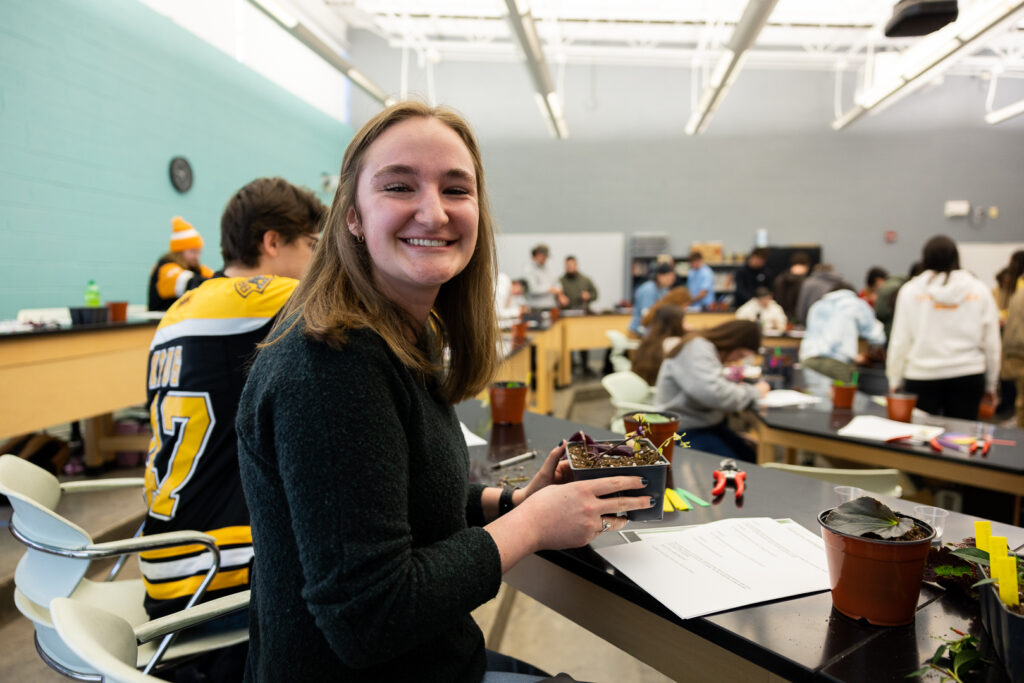
Public Horticulture
The Public Horticulture concentration is designed for students interested in professional careers that promote horticulture and emphasize education and the enjoyment of plants. Technical electives allow students to concentrate in specialties of their interest while encouraging development of strong communication skills. Students are encouraged to earn a minor in a supportive field such as education, communications, or journalism.
Employment prospects include directing a botanical garden or park or working as a city or urban horticulturist, Extension professional, teacher, educational director, program coordinator, professional garden writer or editor, publication manager, horticulture therapist, public garden curator, or plant collections manager.
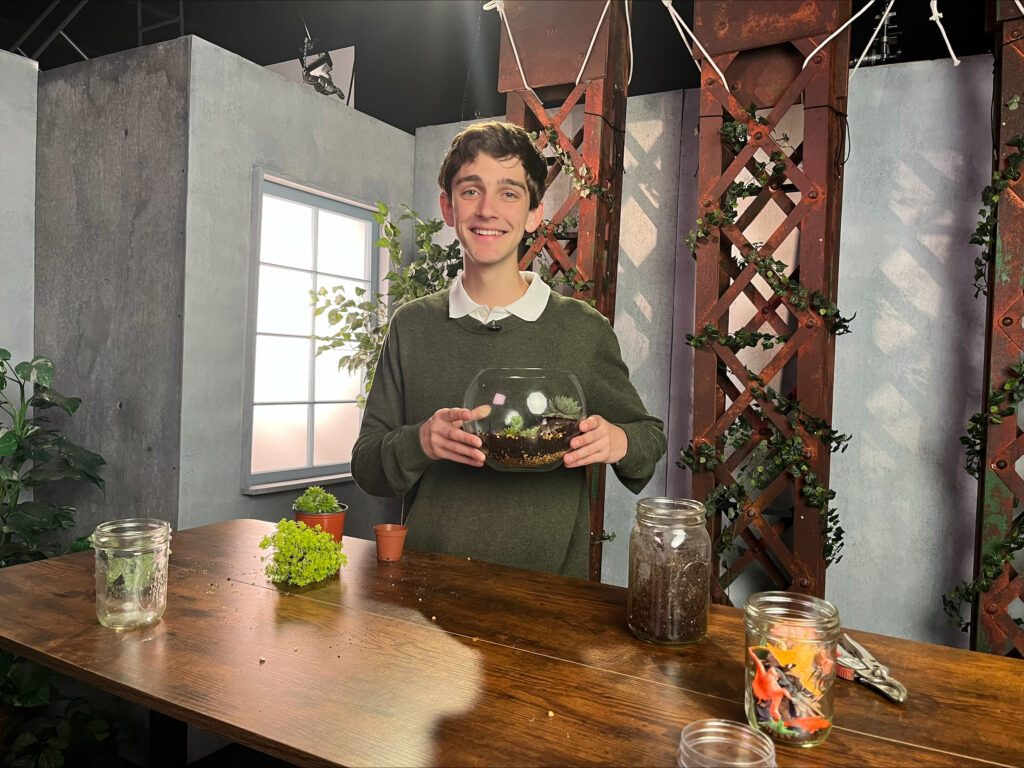
Organic Production
The Organic Production concentration is designed to create leaders in the field of organic and sustainable agriculture. Students will gain the knowledge and skills for production and management of organic cropping systems. Instructors integrate soil science, agricultural economics, entomology, ecology, and plant pathology to offer a diversified curriculum. Classroom instruction is enhanced by the UT Institute of Agriculture’s Organic Crops Unit.
Employment prospects include owning your own organic farm, consulting, agricultural Extension, environmental education, government agency work, international agricultural development, and research. This concentration also prepares students with a strong interest in the science of organic crop production for graduate studies.
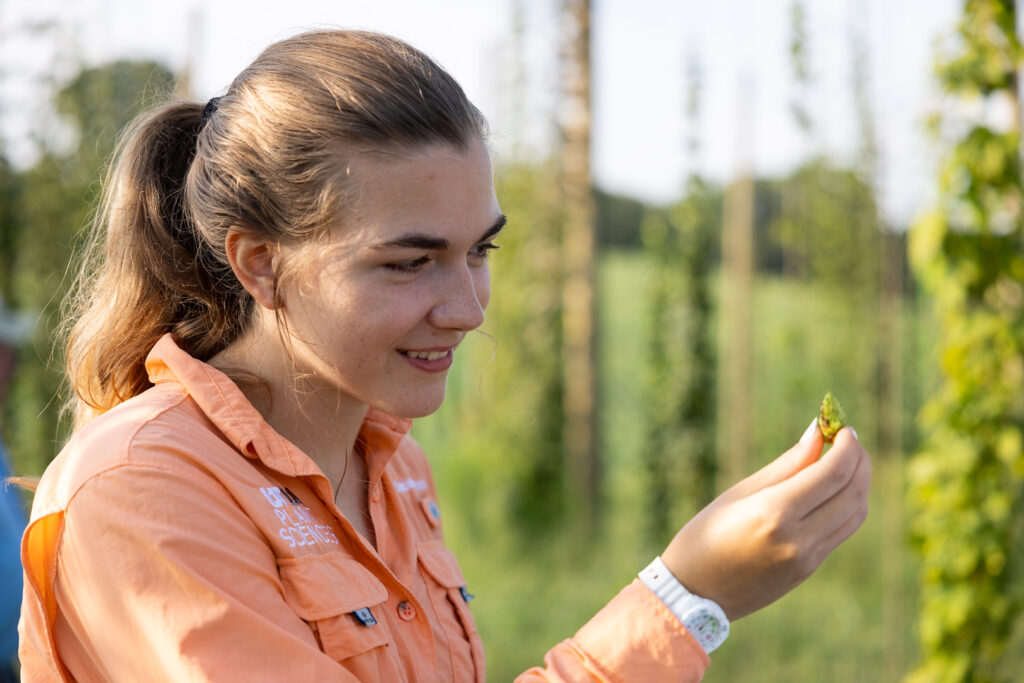
Sustainable Landscape Design
The Sustainable Landscape Design (SLD) concentration seeks to provide healthy food and clean water, combat environmental degradation, and support public health initiatives by working with nature. The landscape is a life-sustaining ecosystem shared by all that inhabit the earth. It is the cities and towns where we live and work, the parks and gardens where we play, the fields that nourish our bodies and supply our economies, and the wilderness that restores us. Pressures from a growing population and a changing climate mandate that we look beyond the aesthetic potential of the designed landscape to solve bigger issues. Studies include plant materials, design development and communication, construction methods, environmental science, and ecological systems.
Through a contemporary education in landscape design and horticulture that prioritizes experiential learning, and through strategic selection of elective course work, SLD graduates will be positioned for success in one of three primary career trajectories:
- Ecological Landscape Design and Management for students who envision roles in design consultancies, non-profits or public entities
- Entrepreneurship for students who envision having their own businesses
- Pre-Professional for students who wish to take advantage of our accelerated 4+2 advising pathway to the Master of Landscape Architecture degree available through the UT School of Landscape Architecture
Connect with the Concentration Chair, Professor Michael Ross.
Click here for more on the Sustainable Landscape Design concentration.
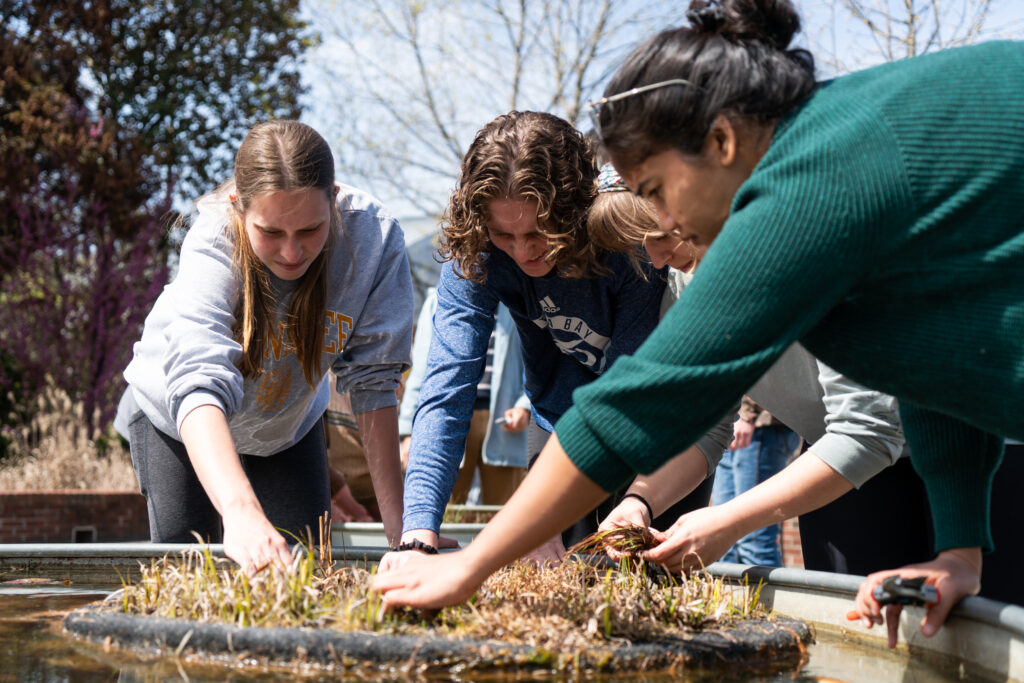
Turfgrass Science And Management
The Turfgrass Science And Management concentration is designed for students desiring to pursue professions growing and managing turfgrass used for residential and commercial lawns, golf courses and other athletic fields, and public landscapes. The diverse program combines the study of grasses, soil, water, pests, and the human relationship with turfgrass. Professionals produce, maintain, and study turfgrasses for aesthetic, recreational, and environmental uses.
Curriculum emphasizes experiential learning opportunities. Turfgrass is a multibillion-dollar business in Tennessee alone, and through partnerships with industry, students garner rewarding internships and employment, here and around the world. Faculty are concerned with larger research opportunities beyond aesthetics, such as sports safety and environmental issues, and students graduate prepared to find solutions to the challenges facing the future of the field.
Faculty are dedicated to expanding opportunity in the turfgrass industry and creating an inclusive and personable environment. Academic cohorts regularly learn, work, and travel together. Students frequently meet with their faculty mentor and develop close professional relationships with other professors. Faculty are committed to getting students hired at their dream jobs.
Connect with the Concentration Chair, Dr. Brandon Horvath.
Click here for more on the Turfgrass Science and Management concentration.
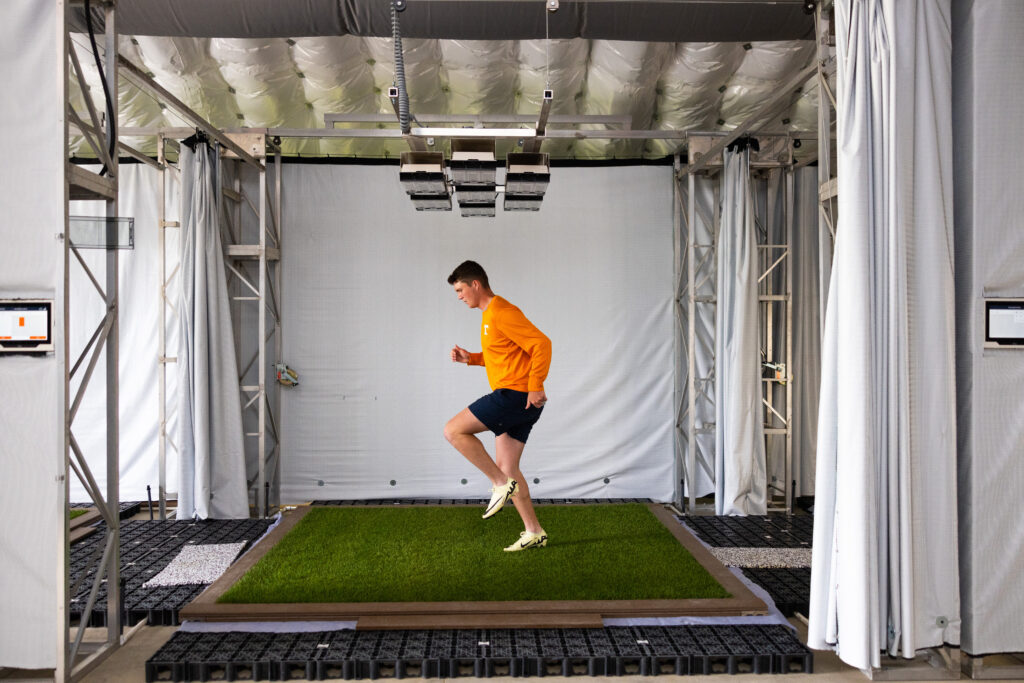
Plant Genetics And Biotechnology
The Plant Genetics And Biotechnology concentration is designed for students who wish to pursue advanced degrees in plant molecular biology, bioenergy, and biotechnology or careers in the plant biotechnology industry. The curriculum will prepare students for graduate studies, which in turn, will prepare students for life as professional scientists. Alternatively, the plant biotechnology industry and biotechnology affiliated industries have recurrent demand for competent bachelor’s level scientists.
Additionally, one hallmark of our Plant Sciences degree is a requirement for students to complete an internship or participate in research directly in an affiliated faculty member’s lab.

The Plant Sciences Minor
Students can also choose to minor in Plant Sciences. The minor consists of 15 credit hours of PLSC courses, 9 of which must be at the 300-400 level. No departmental or college orientation 100-level course may be used to satisfy the requirements of the minor.
Explore our current course offerings.
Find out more about the undergraduate admissions process!
We would love to see you on campus!
Professional Development
Students can advance their undergraduate experience by participating in research, Extension work, and internships. Students in the Department of Plant Sciences are also encouraged to pursue a minor to complement their studies.
